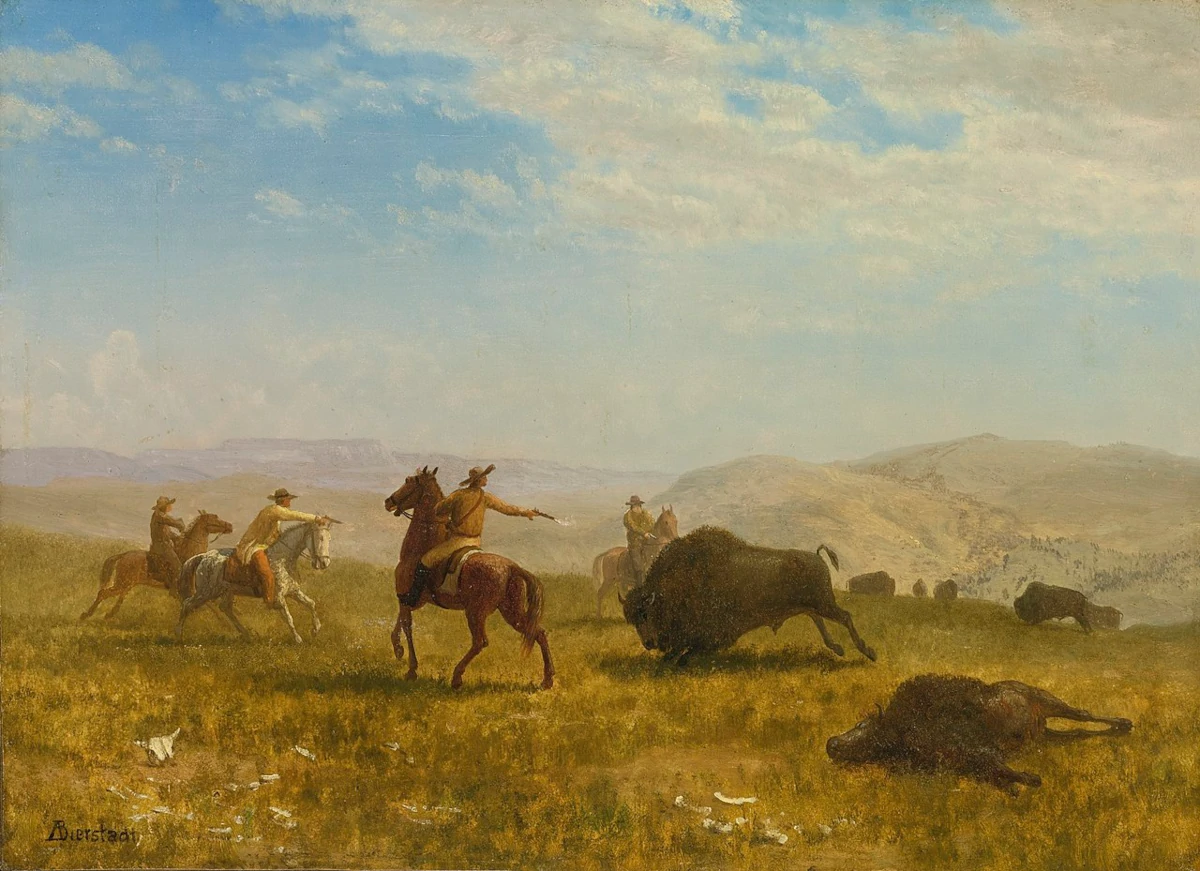
Weird West
Words By Evan Sheldon, Art By Albert Bierstadt
The wild west. Saloons, high-noon shootouts, proverbial rolling tumbleweeds…robots? For those of you who’ve watched HBO’s Westworld, you’ve seen the weird west in action. Despite many rave reviews and millions of captive viewers, Westworld is merely a recent incarnation of a larger literary phenomenon that began back in the 1930’s.
Weird westerns are stories that blend traditional western tropes with staples from other genres like fantasy, horror, and science fiction. This sub-genre is largely thought to have begun with Robert E. Howard’s 1932 story, “The Horror of the Mound.” While he is more well known for creating the Conan the Barbarian comics, Robert E. Howard’s creation of the “weird western” has led to decades of stories reimaging the wild west.
For many years, the sub-genre flourished in pulp magazines and comics, but rarely made its way into the hands of mainstream readers. Recently, more and more respected authors have dabbled in the weird west. Gemma Files, Brandon Sanderson, and Elizabeth Bear have all written weird westerns in the past ten years. Oh, and you might have heard of a little series entitled “The Dark Tower.” Even Stephen King can’t stay away.
But why? Why are these major authors writing in this tiny sub-genre? What about the weird west holds appeal for modern writers? And what about the weird west holds appeal for modern readers?
I think we have to take a look at the themes that make the western genre enticing. In a culture where the internet and social media has made communication across the world instantaneous, there’s something appealing about wide open spaces and unexplored terrain. The setting nearly screams adventure and potential. Who among us does not occasionally daydream about improving their lot in life? With all the hustle and bustle of modern life, who wouldn’t be momentarily captivated by the prospects of a simple life?
But what about the robots? What about the magic and mayhem? Why not just write a traditional western, where the guy in the white hat shoots the guy in the black one and rescues the damsel?
The answer lies in the question itself. (I know, I know, I’m not Zen master, but I couldn’t resist.) Thankfully, the literary world continues to diversify. People who may not have had voices twenty, thirty, and forty years ago now have platforms to share their perspective. And when they look at the traditional western, they may not see themselves. Author’s like Gemma Files and Elizabeth Bear are reimagining the narrative, where women aren’t the ones who need saving. What if the guy in the black hat isn’t the bad guy?
This is what makes the weird west genre so vital. Americans today are just as concerned with justice as the old good guy gunslingers of the past, but now the concept can play out without strict adherence to racial and gender lines. Weird west authors are pointing out that white males aren’t the only ones who can be heroes. This reimaging rings hopeful not only for minority groups but our culture as a whole.
Good literature has a way of focusing our eyes where they might not naturally be drawn. It can point out where we are coming up short, or where we can be more generous and inclusive. Stories can change our minds and our hearts in lasting, very real ways. The weird western genre is doing this right now.
The next time you read a back cover that depicts a wizard dueling a fairy queen at high noon, take a second. Don’t discard it as substandard literature. That book might change how you view your neighbor, your grocery store clerk, your uber driver, or even yourself.